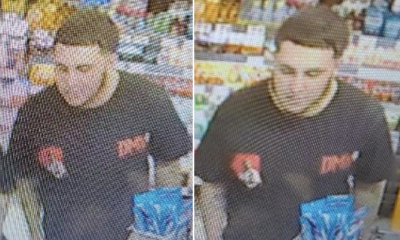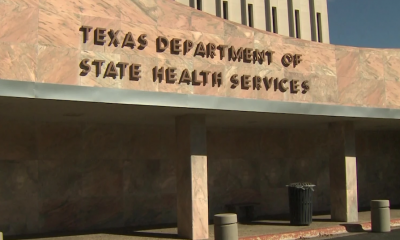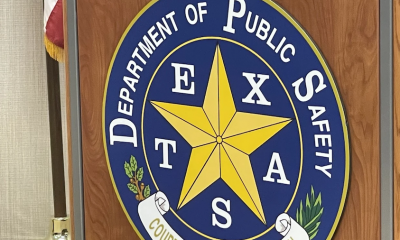U.S. News
‘How much fraud is OK?’: In voter fraud debate, Republicans have a trump card
AUSTIN, TX – Democratic state Sen. Royce West of Dallas was making a point.
The number of prosecutions for voter fraud cases in the state of Texas is low. In its 15 years of existence, the Texas Attorney General’s Election Integrity Unit has prosecuted a few dozen cases in which offenders received jail time, but none of them involving widespread fraud.
Meet the North Texas quadruplets who recently celebrated their first birthday
Photos of the Marr quadruplets, Harrison, Hardy, Henry and Hudson throughout their first year.…
And though his colleague, Sen. Bryan Hughes, R-Mineola, was talking about another voter fraud indictment in his home county of Gregg, that was one case in one county in a state of 254 counties and 30 million people.
But Hughes had a ready retort: “How much fraud is OK?”
“How much fraud is OK?” he repeated. “I want to know.”
Game, set and match. Hughes pushed forward with his bill, an omnibus piece of legislation he says will reduce voter fraud and opponents say will suppress the votes of marginalized communities.
The argument is a familiar one to followers of voting legislation over the last two decades, as Republicans in statehouses across the country have moved to stiffen voting regulations, arguing that such changes are necessary to combat voter fraud.
And it’s an effective point. It puts the proposal’s opponents in the unenviable position of having to defend the low level of fraud cases that happen as a normal part of any large election system. Who wants to be pro-fraud?
“The difficulty for Democrats is that it’s kind of hard to sell the argument that you won’t eliminate 100% of fraud but that even a small number of cases isn’t a big deal,” said Patrick Miller, a political scientist at the University of Kansas who researched arguments over voter fraud bills. “For the public, even one case can legitimize the view that fraud is rampant and impacts the outcome.”
“In their over 20 years of this being an issue… Democrats have never come up with an effective counterargument,” Miller said.
That’s because Americans by and large do not trust the government’s handling of elections and perceive that there’s more voter fraud than actually exists, he said.
Historically, voter fraud was a problem both parties took part in. In the 19th century, Boss Tweed ran the Democratic political machine in New York, and no conversation about voter fraud in Texas is complete without discussion of Lyndon Johnson’s primary race for the Senate in 1948, which he appeared to have lost until 202 additional ballots were found in a precinct that gave him the victory.
But over the 20th century, Miller said, American elections changed drastically to protect against voter fraud.
“The average American does not realize how well regulated our elections are in terms of the incredible amount of transparency that we have,” he said. “There are a lot of checks on it. Checks on voters, checks on election officials, [and] audits.”
Lack of knowledge
That lack of knowledge leaves an opening for those who want to cast doubt on the integrity of elections.
During a news conference this week, Lt. Gov. Dan Patrick said the state needed “as close to zero tolerance” for voter fraud as it could get.
“The other night during the debate, one of the Democratic Senators said, ‘Sen. Hughes, why do we need this bill? We have less ballot fraud than we used to have,’” he said. “Really? So how much did we used to have? … How much do we have now?”
The problem, Miller said, is criminals will always find a way around the rules, and while they will get close, no election system will ever be 100% foolproof.
“If you have one case of voter fraud out of a million votes cast, on one hand, that’s not very many,” Miller said. “On the other hand, that’s more than zero.”
Patrick, a Republican who has advocated for voter fraud bills for years, compared election security to a bank account.
“Don’t you want your bank to be secure?” he asked. “Is it okay for someone to hack in and steal 10% of what you have, or 5%? Or do you want all 100% of your money to be protected in your bank.”
But Brandon Rottinghaus, a political scientist at the University of Houston, said the idea should be flipped on its head.
“Just because occasionally there’s a bank error doesn’t mean we should shut down ATMs. We have to make it better,” Rottinghaus said.
To do that, lawmakers would dedicate more resources and people to elections, like some of the state’s major counties have done. Instead those counties, Harris in particular, are being attacked for the new voting options they offered.
Perceptions an issue
Overall, Rottinghaus said, voters are distrustful of the voting process because fraud cases are amplified by politicians and the news media, and because voting happens so infrequently that few voters understand the process.
A glitch in the system where a computer changes a vote, or mail ballots are not reaching their destination, may be system malfunctions, but they leave voters with the perception of nefariousness, Rottinghaus said.
He likened voter fraud cases to lost Amazon deliveries. The percentage of Amazon packages that get lost is probably as low as the number of voter fraud cases, he said. But because people order online deliveries frequently, they understand that occasionally there will be a mix-up and know the process to file a complaint and retrieve their package.
With voting, which happens less often and is a constitutional right, most voters don’t know the process and will be less understanding if they perceive something going wrong with their ballot.
“It makes people worried that it’s easy to have voter fraud, even if it’s logistically difficult to stuff a ballot box,” Rottinghaus said.
Pointing out failures
The only effective way to combat overblown claims of voter fraud, Miller said, is to point out when they fail.
In 2018, a federal judge threw out Kansas’ “proof of citizenship” requirement for voter registration after finding during trial that the state had failed to prove evidence of widespread voter fraud. But because of the law, more than 30,000 voter registration applications submitted during an application or renewal of a driver’s license were suspended for not providing proof of citizenship at that time.
A year later, Texas faced its own claims of noncitizen voting, when then-Secretary of State David Whitley claimed that 98,000 people on the state’s voter rolls had received their license while they were not U.S. citizens. Of those, about 58,000 had voted in one or more elections.
But the bold claim of voter fraud fell apart just days later, when state officials asked county officials to hold off on suspending their registrations because of a data error. In court, state officials said that at least 25,000 of those on the list had already proven their citizenship.
Texas eventually cancelled its advisory and had to pay nearly half a million dollars in attorney’s fees in a settlement agreement.
“When the costs of these regulations becomes severe and ridiculous, that’s when it backfires,” Miller said. “It has to be very concrete.”
But that’s also a challenge, Miller said, because most people tune in for the fraudulent claims and don’t follow the cases through the legal process, when many voter fraud cases get dropped because they lack enough evidence or the parties agree that a mistake happened.
But Emily Eby, a staff attorney at the Texas Civil Rights Project, which challenged the state’s advisory questioning the citizenship of nearly 100,00 voters, still takes solace in those court wins.
“They can say whatever they want … but at the end of the day we are able to prove that this state has discriminated against people of color in court,” she said. “They can’t prove that there is fraud, but we can prove that there is suppression.”










